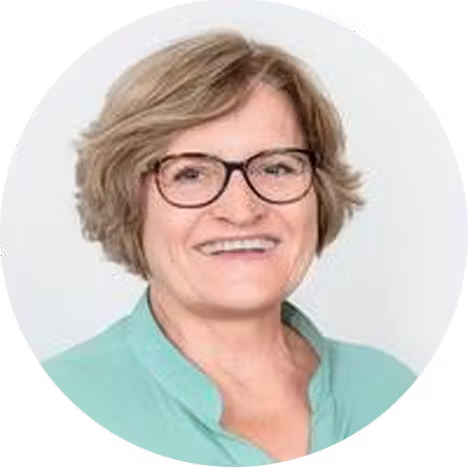With recent developments in the study of aging, researchers are now looking for treatments that not only target age-related diseases, but the aging process in general. That is where the next big breakthrough in medicine could come from.
How would you define aging?
Prof. Sikora: As far as the human body is concerned, it is a gradual loss of functionality and health caused by the accumulation of senescent cells in the organism.
What aging is?
Prof. Sikora: Previously, we have considered aging as the physiological or pathological process . The physiological aging is what we observe when we study centenarians. The pathological aging is when the elderly suffer from so called age-related diseases, such as Alzheimer’s, cancer, cardiovascular disease and many others. It was believed these were two separate processes. But over time, we have learnt that both are caused by the same processes on the molecular and cellular level. Aging can take different trajectories and happen at different rates, but the underlying processes are the same.
Why is that so important?
Prof. Sikora: This is important, as research tells us postponing aging we can avoid age-related diseases. Moreover, it seems that there are some political reasons. The Federal Drugs Administration, which sets the tone of practically all medical research, will never approve clinical trials for something that is not a disease. If aging is not a disease, we cannot test antiaging drugs. But if we can convince the FDA that aging is a disease, or at least that it has the same roots as many diseases, we may be able to test antiaging treatments, such as metformin, which is used in type 2 diabetes, but also has antiaging effects. So scientists started pushing for clinical trials of metformin in antiaging research and succeeded.
Can we treat aging then, just like we treat diseases?
Prof. Sikora: One of the areas of my research also involved curcumin, which influences some cellular processes contributing to aging. It later turned out that curcumin, an extract from turmeric rhizome, has a number of beneficial antiaging and anticancer effects. But at the time I was studying it, most researchers considered natural compounds as unscientific. The incredible renaissance of natural compounds in medicine that we are experiencing today, had yet to come.
Now scientists have embraced them, also due to their pleiotropic nature, which means they can be used for a variety of ailments, not just for one specific purpose. We now believe that this is where the breakthrough in Alzheimer research will come from. Rather than look for one specific compound that eliminates Amyloid beta – the direct cause of Alzheimer’s, researchers are looking for compounds that target aging in general.

The main manifesto of geroscience is that aging can take different trajectories and happen at different rates, but the underlying processes are the same.
What was the biggest breakthrough in medicine in recent years?
Prof. Sikora: I study cellular senescence. I believe that one of the most groundbreaking recent achievements was proving that we can eliminate senescent cells from genetically-modified mice. This proves that eliminating senescent cells not only prolongs life but also alleviate the symptoms of many age-related diseases. In Mayo Clinic in the USA the first pilot study in humans has just been completed proving that it is possible
This could mean we will be able to find drugs specifically for postponing aging. As a matter of fact some very promising candidates exists, which we call senolytics (compounds killing senescent cells selectively). Of course, researchers need to be very careful because many compounds could have serious side effects. That’s why further research and ultimately clinical trials are so important.
How did your interest in aging begin?
Prof. Sikora: I’ve been interested in aging since I was a student of biochemistry at Warsaw University. I was preparing something interesting for a seminar and as I was browsing through literature when I came across something fascinating – cell senescence in cultures. It was Leonard Hayflick’s findings that normal cells, unlike cancer cells, have a limit on how many times they can undergo division. It’s called Hayflick’s limit.
Today, we also know that this is not the only way cells can be senescent. They can also senesce very quickly as a result of any stress without reaching the Hayflick limit. This is called stress-induced premature senescence, as opposed to replicative senescence.
I decided it was what I wanted to study further. I wanted to find the answer to why normal cells, as opposed to cancer cells are mortal. No one was studying that in Poland at the time. So I joined the Nencki Institute after university, which was one of several research centers that carried out tissue culture research.
Why was no one studying aging in Poland at the time?
Prof. Sikora: Because all research had to serve the five-year plans set by the regime at the time. That all changed in 1989/1990, when the regime fell and scientists were suddenly free to pursue other interests. So I waited until I was 37 to finally be able to realize my dream and study aging.
I went to a conference in Modena organized by Prof. Claudio Franceschi, who later convinced me to start study of Polish centenarians, following a global trend to study longevity and “successful aging.” We counted Polish centenarians and characterized their immune system, among others. At the time there were approx. 2,000 hundred-year-olds in Poland. Now we have around 4,000.
What is the biggest added value of Polish scientists in the area of the global age science sector?
Prof. Sikora: Thanks to the centenarian study, Poland has joined the global trend. The research into Polish elderly people was continued as part of a study called “Polsenior,” which focused on the health of people aged 65 and above. This project, coordinated by Dr. Mossakowska, has been carried out by the International Institute of Cellular and Molecular Biology.
In which areas will the research continue?
Prof. Sikora: I believe that learning how to eliminate senescent cells is where researchers will continue to look for a breakthrough. Senescent cells do not die, in fact, they are quite resistant to cell death. But they secrete inflammatory agents, which cause a low-grade inflammatory state, thus inducing senescence in other cells and creating the microenvironement which favors age-related diseases. For example, people who were treated with radiation or chemotherapy in their youth have more senescent cells in their bodies and they age prematurely. That is the future of research. To eliminate this side-effects of childhood cancer treatment.

